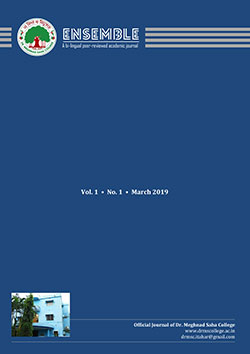Attitude, Awareness and Barriers in Research: A Study on the Post-Graduate Students and Research Scholars in West Bengal
ABSTRACT
The purpose of the present study was to examine the attitude, awareness and barriers in research on the Post-Graduate (PG) Students and Research Scholars under the universities in West Bengal. The researchers have adopted the descriptive research method and its approach is quantitative for measuring the attitude, awareness and barriers in research. In keeping the variables (Gender, Locality, and Stream) in mind, 150 Post Graduate Students and 140 Research Scholars were selected as sample from the University of Calcutta, University of Kalyani and University of Burdwan in West Bengal. An Attitude Scale based on Likert’s 5-point scale (Bi-polar on 40 items) was developed and used by investigators for measuring their attitude towards research. For the awareness about research methodology, an Awareness Scale based on Likert’s 4-point scale containing 30 items was developed. To explore the barriers to doing research, researchers developed 10 Statements with the help of experts and it’s a tri-polar scaling method indicating ‘Yes’, ‘No’ and ‘Can’t say’. The result indicated that the Post-Graduate Students and Research Scholars differed significantly in their attitude towards research. The Post-Graduate Students showed a more positive attitude towards Research than the Research Scholars. The Research Scholars belonging to the social science & humanitiesand science stream showed significant difference in their awareness aboutresearch methodology. Despite having self-interest in research (70%) among the research scholars, the barriers to conducting research faced by them markedly included barriers related to institutional affairs (65.7%), lack of research funding (75%), inadequate research facilities (69.2%), lack of research skills and knowledge (59.2%), lack of professional supervisors (77.1%), difficulty in collecting reliable and valid data (80%) and uncertainty of employment (67.8%).
Keywords: Human Resource, Higher Education, Innovations, Knowledge and Skills, Development
https://doi.org/10.37948/ensemble-2020-0202-a005
Views: 2124



